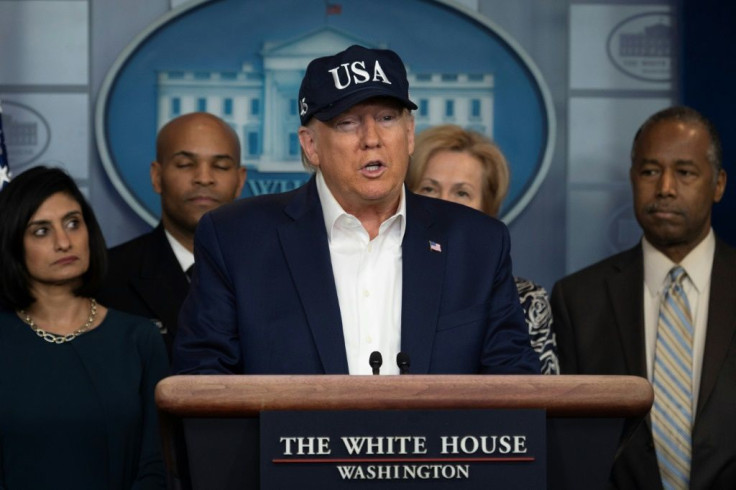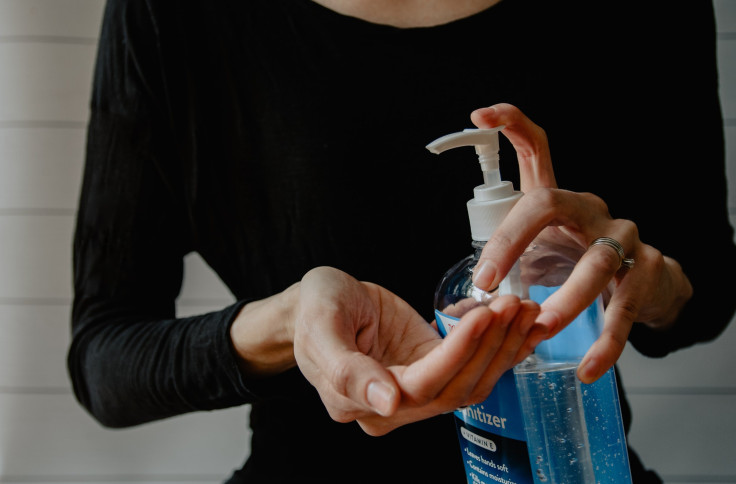Trump’s Tariffs Impacting Availability Of Hand Sanitizer And Other Medical Products: Report

KEY POINTS
- Medical supplies are already dwindling as countries around the world scramble to fight the COVID-19 pandemic
- The Trump administration's tariffs on China are compounding the issue by making products more expensive
- Many medical companies have filed request to have tariffs on products removed
Medical supply companies are claiming that products like hand sanitizer and personal protective equipment like medical gowns are facing supply shortages and their prices have gone up in part because of the tariffs imposed on Chinese imports by President Trump, a report said.
Dozens of requests have been filed with the U.S. Trade Representatives Office (USTR) in recent weeks by companies asking the administration to waive tariffs on their products so they can ramp up their production.
The tariffs on Chinese imports were imposed prior to the COVID-19 crisis but they are hurting the U.S.' ability to bring critical medical care to those affected by the pandemic as demand for them skyrockets across the globe. The Trump administration and China did reach a trade truce in the middle of January and avoided a further escalation in tit-for-tat tariffs, but two-thirds of Chinese goods still face steep import taxes. The tariffs affect about $2 billion worth of medical devices made in China.
Trump has boasted about his tariffs stopping China from taking advantage of the U.S. and helping American businesses, but those same tariffs seem to be limiting his administration's coronavirus response -- which is increasingly looking like the main issue that will decide his reelection prospects.
When reached for comment by the Wall Street Journal about these companies’ claims, the White House did not respond and referred the WSJ to the USTR, which decides what specific products should be subject to tariffs enacted by the administration.
Last month, the WSJ reported that the USTR lifted tariffs on over 100 medical items imported from China following requests by companies making products like face masks, operating room table covers, examination gloves and stethoscope covers. Chad Bown, a senior fellow at the Peterson Institute for International Economics, told the WSJ that “having access to international markets for critical medical supplies is a blessing, not a curse.”
Since the USTR opened a special avenue for companies to request coronavirus-related tariff exclusions on March 20, many medical supply companies have filed for exemptions, with perhaps the most high-profile example being General Motors’ request to lift tariffs on compressor silencers and other parts needed to make ventilators.
An analysis done by the Associated Press found that between February and March “hand sanitizer and swab imports both dropped by 40%, N95 mask imports were down 55%, and surgical gowns, typically sourced from China, were at near normal levels because the sourcing was shifted to Honduras.”
This drop in imports is not entirely due to the tariffs making those products more expensive, but also because China reduced exports to all of its trading partners as it deals with its own COVID-19 crisis. But Joseph Papa, the CEO of Bausch Health Companies, told the WSJ that “if there’s a reduction or removal of the tariffs, that would facilitate us being able to make more [hand sanitizer].”

© Copyright IBTimes 2025. All rights reserved.





















